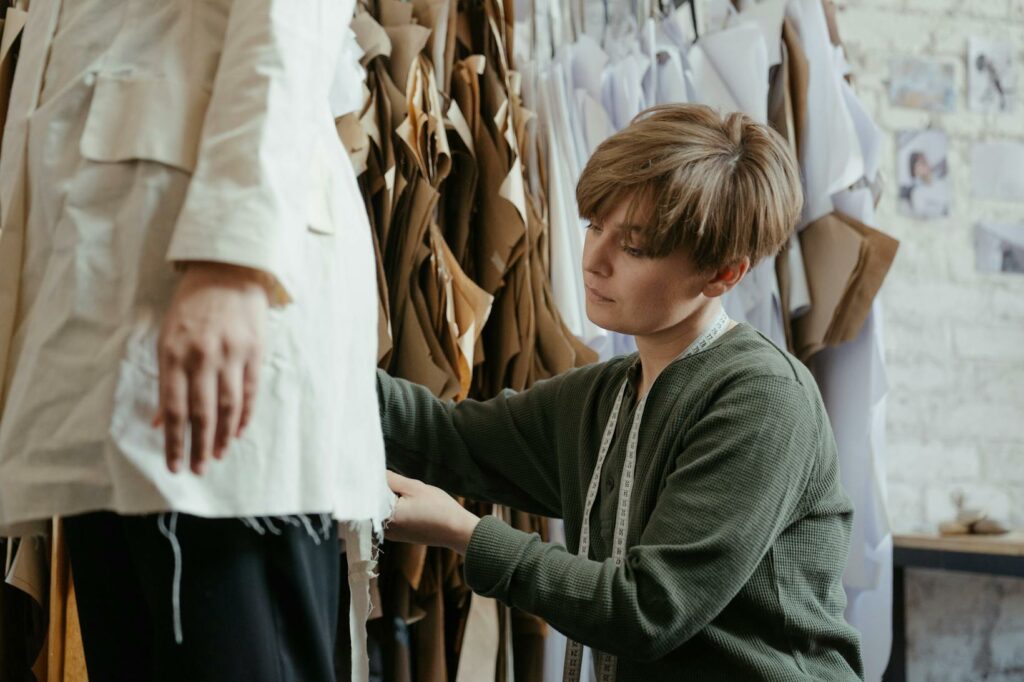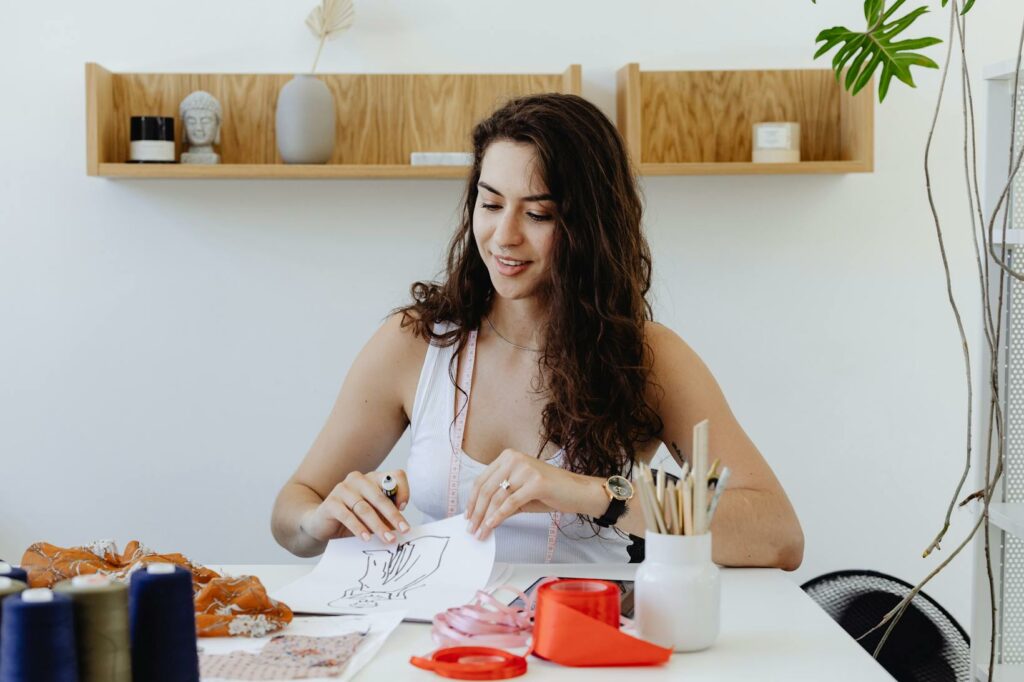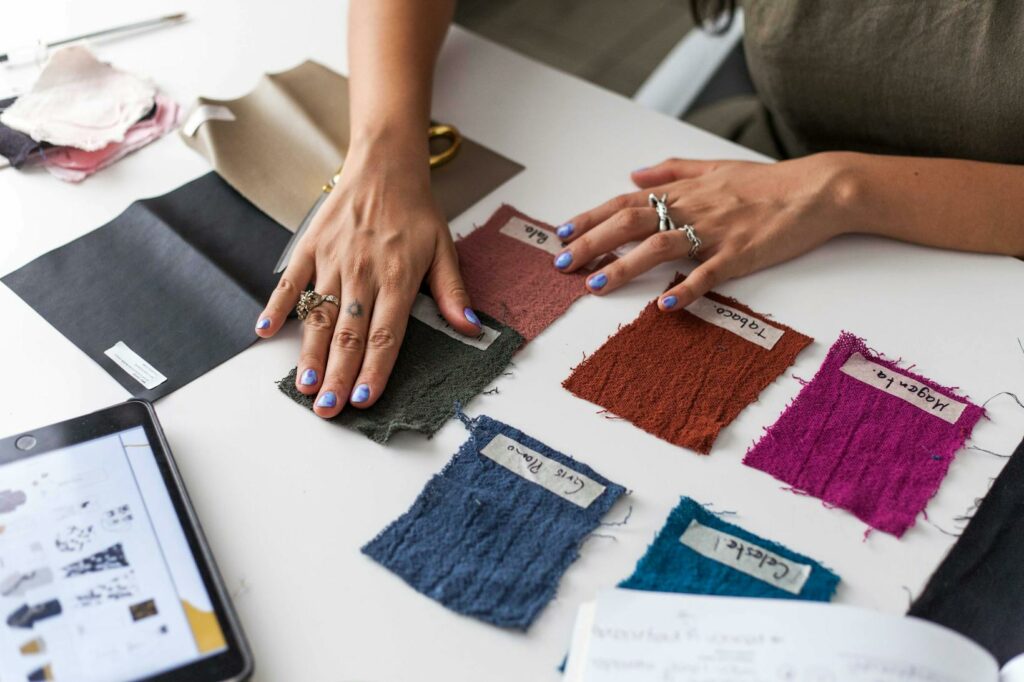Embarking on a Master’s degree in Fashion Design is a transformative journey for those passionate about merging creativity with business acumen. It’s a gateway to honing one’s artistic vision while mastering the strategic aspects of the ever-evolving fashion industry. This advanced program equips individuals with the skills needed to thrive in the competitive world of haute couture and ready-to-wear fashion.
 With a Master’s in Fashion Design, students delve deep into trend forecasting, sustainable practices, and cutting-edge technologies shaping the future of the fashion landscape. From conceptualizing runway collections to understanding consumer behavior, this specialized degree opens doors to a myriad of career opportunities in design houses, retail, and entrepreneurship.
With a Master’s in Fashion Design, students delve deep into trend forecasting, sustainable practices, and cutting-edge technologies shaping the future of the fashion landscape. From conceptualizing runway collections to understanding consumer behavior, this specialized degree opens doors to a myriad of career opportunities in design houses, retail, and entrepreneurship.
Stay ahead of the curve and explore the dynamic realm of fashion with a Master’s degree tailored to unleash your creative potential and industry expertise.
Master Degree In Fashion Design
Embarking on a Master’s degree journey in Fashion Design offers unparalleled benefits, combining artistic flair with strategic business insights. This advanced program hones individuals’ skills, preparing them to excel in the fiercely competitive fashion landscape.
Career Advancements and Opportunities
A Master’s degree in Fashion Design propels individuals into a realm of diverse career options. Graduates are equipped to lead design teams in renowned fashion houses, venture into retail management, or even establish their entrepreneurial ventures. With a strong emphasis on trend forecasting, sustainability, and embracing cutting-edge technologies, the degree opens doors to a spectrum of exciting opportunities.
Networking and Industry Connections
Networking plays a pivotal role in the fashion industry, and a Master’s degree program provides an unparalleled platform to forge connections with industry veterans, experts, and peers. The rich network built during the program serves as a valuable asset, offering insights, collaborations, and potential career prospects. Through industry collaborations and internships, students establish vital connections that can significantly impact their future success in the dynamic realm of fashion.
Curriculum and Specializations
Exploring the curriculum and specialization options in a Master’s degree in Fashion Design unveils a diverse range of core courses and elective opportunities tailored to enhance students’ design expertise and industry knowledge.
Core Courses
 The core courses in a Master’s degree in Fashion Design typically cover essential topics such as design theory, fashion history, textile innovation, and trend analysis. Students delve into advanced design techniques, garment construction, and portfolio development to hone their creative skills.
The core courses in a Master’s degree in Fashion Design typically cover essential topics such as design theory, fashion history, textile innovation, and trend analysis. Students delve into advanced design techniques, garment construction, and portfolio development to hone their creative skills.
Additionally, courses focusing on sustainability, ethical practices, and global fashion trends are integrated to equip students with a comprehensive understanding of the evolving fashion landscape.
Elective Opportunities and Specialization Areas
In pursuit of a Master’s degree in Fashion Design, students have the flexibility to choose elective courses and specialization areas aligned with their interests and career goals. These elective opportunities allow students to tailor their learning experience by selecting modules in areas such as luxury fashion, digital innovation, fashion marketing, or sustainable design. Specialization areas offer in-depth knowledge and practical skills in niche sectors of the fashion industry, enabling students to carve a unique career path based on their expertise and passion.
Career Outcomes for Graduates
Fashion design graduates have a plethora of exciting career opportunities awaiting them upon completing their Master’s degree. Here are some prominent roles and positions available in the fashion industry:
 Roles and Positions Available
Roles and Positions Available
- Fashion Designer: As a fashion designer, graduates can work for established fashion houses, luxury brands, or start their own label. They are responsible for creating innovative and aesthetically pleasing clothing and accessories.
- Creative Director: Creative directors oversee the artistic vision of a brand or fashion house. They lead design teams, develop creative concepts, and ensure brand consistency across all creative projects.
- Fashion Buyer: Fashion buyers select and purchase the latest fashion trends for retail stores or online platforms. They analyze consumer behavior, monitor market trends, and collaborate with designers and suppliers to curate collections.
- Fashion Merchandiser: Fashion merchandisers bridge the gap between design and retail by strategizing product assortment, pricing, and promotion. They ensure that products meet consumer demands while maximizing profitability.
- Textile Designer: Textile designers create patterns and designs for fabrics used in clothing, accessories, and home furnishings. They combine artistic flair with technical knowledge to develop unique textile creations.
By leveraging their expertise, creativity, and industry knowledge, fashion design graduates can carve diverse and rewarding career paths, whether in established roles or as innovative entrepreneurs shaping the future of the fashion landscape.



